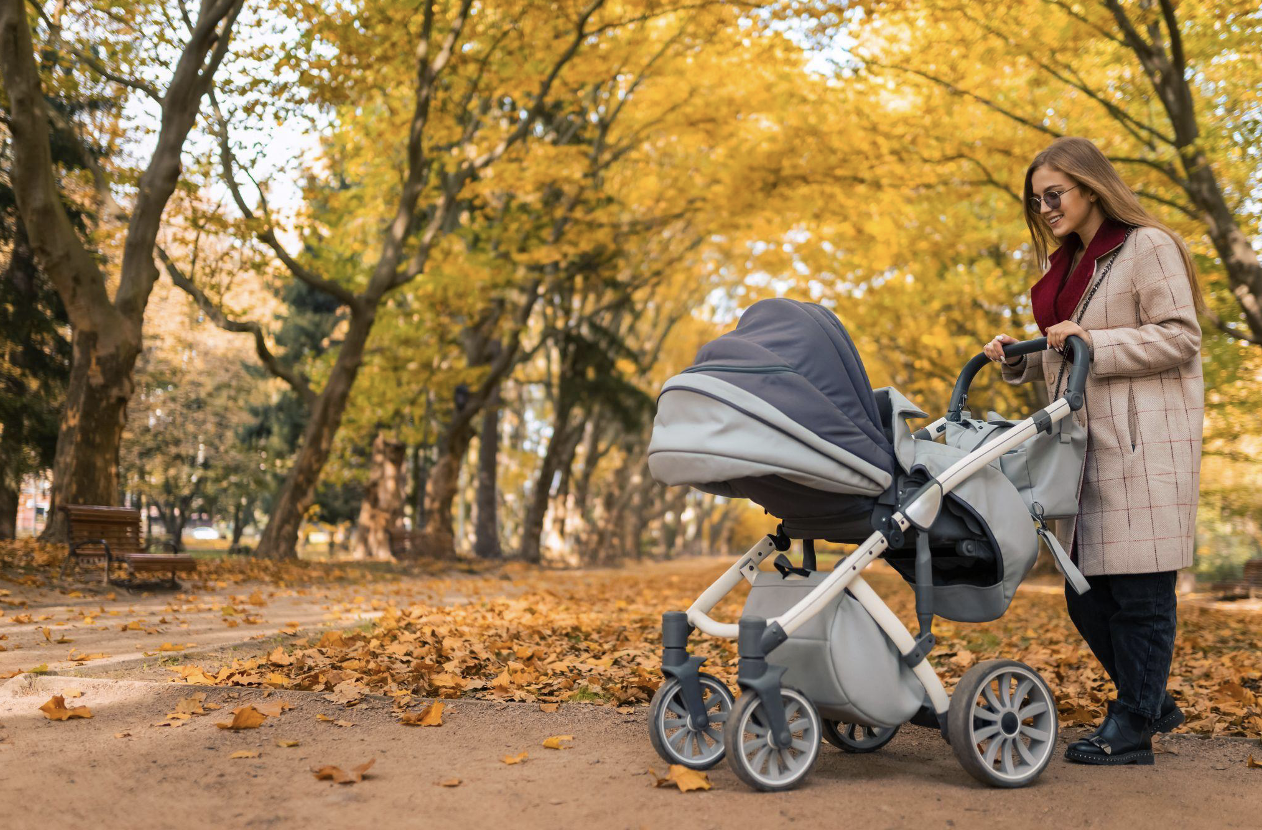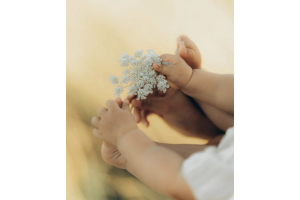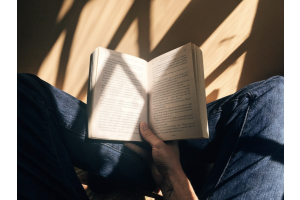How First-Time Parents Redefine “Fresh Air” with a Baby

Key Takeaways:
- Leaving the house with a baby often feels like a major emotional and logistical milestone for new parents
- Short walks quickly become part of a daily rhythm that supports both parent and baby’s mental wellbeing
- Outdoor time introduces unexpected social connections and a growing sense of confidence
- Small, repetitive outings help new parents build trust in their own instincts through observation and routine
You probably imagined it more than once before your baby arrived — stepping out on a crisp morning, hot coffee in hand, baby peacefully asleep while you push the pram through quiet streets. There’s something almost cinematic about the idea of taking your newborn out for some fresh air. But once you’re actually in it, the scene feels a little different. It’s not just about the weather. It’s whether the bottle is packed, whether the baby’s fed, and whether you’ve timed it all in that rare and perfect post-nap window.
The idea of “fresh air” takes on a whole new meaning. It becomes less about oxygen and more about escape, rhythm, and a surprising mix of vulnerability and strength. For first-time parents, even a short outing can feel like a significant shift — part emotional recalibration, part logistical challenge. And oddly enough, one of the most meaningful parts of early parenthood.
Understanding the Outdoor Threshold
There’s a strange mental hurdle that shows up when it’s time to take the baby outside for the first few times. You want to go. You probably need to go. But suddenly, walking out the front door feels like you’re crossing into the unknown. It’s not just about remembering nappies or tucking a muslin into the side pocket. It’s whether you’re ready for the crying, the unpredictable stops, or the way strangers suddenly feel comfortable commenting on your baby's size, outfit, or age.
This is the phase where tiny routines feel like military operations. Getting out the door can take forty minutes. You might rehearse conversations in your head. What if the baby cries and you can’t settle them? What if someone looks at you funny? It’s a strange cocktail of pride and panic, because you're doing something big — something very ordinary, yes — but big, when it’s your first time. And once you do it, you start to realise how small daily tasks start to build your confidence more than all the baby books combined.
When the Outdoors Feels Like a Project
Before kids, stepping outside was simple. You needed your phone, maybe some keys, and off you went. Now, it feels like preparing for a day hike — and you're only walking two blocks. There’s the nappy bag, the extra outfit, the dummy, the bottle or breastfeeding cover, and maybe that one toy that calms them if the crying starts. Even deciding whether to use the carrier or bring the pram can take longer than the actual outing itself.
And then there’s the schedule. Suddenly, the idea of being spontaneous doesn’t fit. Your baby has a nap “window” you try to stick to. Feeding has to be accounted for. And heaven help you if both collide mid-walk. You start checking weather apps obsessively, not just for rain, but for wind. Too much wind, and your baby might fuss the whole time. Too sunny? You're mentally calculating shade options.
It’s easy to feel like you’re overthinking everything — and maybe you are. But that overthinking is how you slowly learn to trust your instincts. Even if it feels like a project, it teaches you a new kind of rhythm, one that centres not just around your baby, but also around what you can manage that day. And that shifts from morning to afternoon, from week to week.
The Unexpected Social Layer of Baby Walks
It starts quietly. A nod from another parent passing by. A stranger offering a gentle “how old?” as you wait at a crossing. Before long, you begin to notice you’re not just walking — you’re part of a quiet network of people doing the same thing at the same strange stage of life.
Parks, footpaths, and cafés suddenly feel like shared spaces again, but in a different way. Everyone’s tired. Everyone’s figuring it out. And somehow that makes it easier to talk to people you’d normally just walk past. Sometimes those chats are a lifeline. Other times, you wish you had headphones in. Either way, the social part of walking with a baby creeps in, whether you invite it or not.
It can be comforting — the subtle acknowledgment that other people are living through the same interrupted nights and unpredictable days. But it can also stir up comparison. You might notice someone’s baby sleeps better in the pram. Or that they’re walking without the endless stopping and re-settling. These little observations can quietly pile up, especially on days when you're already running low. It’s all part of learning to tune out what doesn’t matter and pay attention to what’s working for you.
Rethinking Movement and Equipment
The way you move through the world changes when there’s a baby in tow. You start to scan your environment differently. You notice cracked pavements. You see how tight shop doorways are. And you notice just how far the closest shaded bench is when you’re desperate to feed or settle your baby.
This is where having the right setup matters more than you expected. Getting out with a baby means more stops, more starts, and more things to carry — often all at once. Reliable prams with strong suspension and easy steering can take a lot of stress out of the outing, especially if your baby sleeps better on the move. Some parents find the rhythm of walking with wheels soothing, like the body gets a bit of its own routine back while the baby rests.
It’s not just about gear, though. It’s the way your whole posture shifts. You learn to move more slowly, to adjust your pace, to keep one eye on the path and the other on your baby’s face. That physical awareness builds over time. It turns a simple walk into something far more intuitive — where every corner, every ramp, every kerb is quietly factored into how the day might go.
Realising Fresh Air Means More Than It Used To
Before having a baby, fresh air might have just meant clearing your head or stretching your legs. Now, it’s something else entirely. Stepping outside becomes an anchor — a reset button when the hours feel too long or the house starts to close in. It’s not just about changing your environment. It’s about giving yourself space to breathe while your baby takes in the world in tiny doses.
There’s something about the outside that works better than anything else. The movement, the light, the trees overhead — all of it combines into a kind of natural balm. For babies, it’s a lot of gentle stimulation without being overwhelming. For adults, it’s often the first time in the day you’ve done something that feels even remotely normal. The rhythm of walking, even for just ten minutes, can take the edge off a rough morning or soften the mood after a hard feed.
It’s in these quiet, seemingly uneventful moments that something shifts. You start to realise you’re not just getting through the day — you’re building something: a pattern, a bond, a bit of headspace. And somehow, that counts more than it looks like it should.
What You Learn Without Realising
What starts as a way to pass the time or get through the day eventually becomes a kind of quiet education. You begin to notice how your baby reacts to different sounds, lights, or movements. You get better at spotting the signs — when they’re overstimulated, when they’re drifting off, or when they’re just curious and calm.
These little observations don’t feel like learning in the moment. But they are. You’re becoming more fluent in your child’s signals without even meaning to. That fluency builds trust — not just between you and your baby, but within yourself. You stop second-guessing every reaction. You stop wondering if you’re getting it right.
Daily walks, or even just stepping into the backyard, help bring those instincts to the surface. They don’t solve every hard day, but they do offer a sense of rhythm and response. And that’s often the most grounding part of early parenting — finding something simple that helps you feel like you actually know what you’re doing, even when everything else is in flux.






